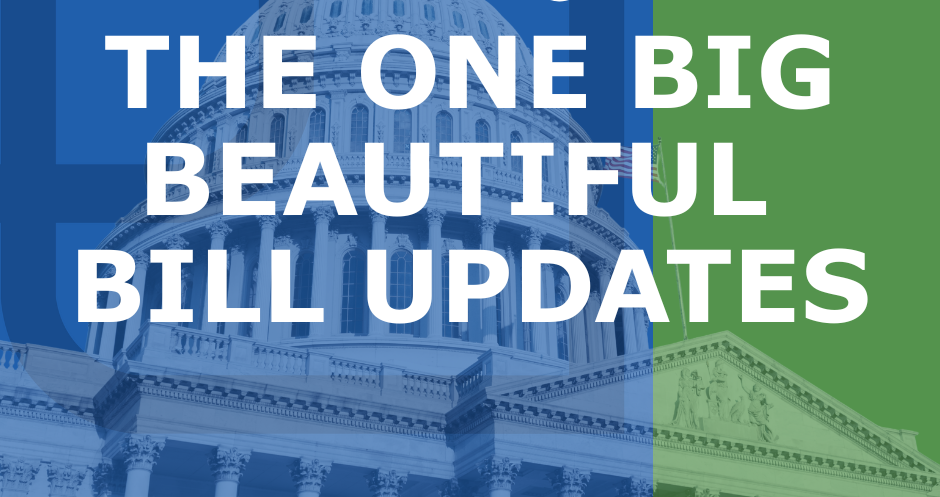The One Big Beautiful Bill Act (OBBBA), enacted in 2025, brings significant and permanent changes to the rules governing the qualified business income (QBI) deduction under section 199A of the Internal Revenue Code. The QBI deduction, originally introduced by the Tax Cuts and Jobs Act (TCJA) of 2017, allowed eligible taxpayers to deduct up to 20% of their qualified business income, but many of its provisions were set to expire after 2025.
The OBBBA not only extends these provisions but also introduces enhancements and clarifications that will affect tax planning and compliance for years to come.

Permanent Extension of the QBI Deduction
One of the most notable changes is the permanent extension of the QBI deduction. Prior to the OBBBA, the deduction was scheduled to sunset for tax years beginning after December 31, 2025. The new law removes this expiration date, ensuring that the deduction remains available indefinitely for eligible taxpayers. This provides much-needed certainty for business owners and investors who rely on the deduction to reduce their effective tax rates on business income.
Expanded Phase-In Ranges for Limitations
The OBBBA also increases the phase-in range for the application of certain limitations on the QBI deduction. Under the previous law, the phase-in range for the wage and property limitations, as well as the exception for specified service trades or businesses (SSTBs), was $50,000 for single filers and $100,000 for joint filers above the applicable threshold. The new law expands these ranges to $75,000 and $150,000, respectively, and indexes them for inflation. This means that more taxpayers will be able to claim the full deduction before the limitations begin to apply, and the phase-out will occur more gradually for those with higher incomes.
Changes for Specified Service Trades or Businesses
The treatment of specified service trades or businesses is another area of significant change. SSTBs, which include fields such as health, law, accounting, consulting, financial services, and any business where the principal asset is the reputation or skill of one or more employees or owners, were previously excluded from the QBI deduction for taxpayers above the income threshold. The OBBBA retains the income-based exception for SSTBs but applies the expanded phase-in range, allowing a greater number of business owners in these fields to benefit from the deduction if their taxable income falls below the new, higher thresholds. The applicable percentage of SSTB income that qualifies for the deduction is now phased out over the $75,000/$150,000 range, rather than the narrower range under prior law.
Minimum Deduction for Active Business Owners
A new feature introduced by the OBBBA is the establishment of a minimum QBI deduction for active business owners. For tax years beginning after December 31, 2025, any taxpayer with at least $1,000 in aggregate qualified business income from all active qualified trades or businesses (where the taxpayer materially participates) is guaranteed a minimum deduction of $400, even if the standard calculation would yield a lower amount. Both the $1,000 income threshold and the $400 minimum deduction are indexed for inflation beginning in 2027. This provision ensures that small business owners and active participants in qualified trades or businesses receive at least a modest benefit from the QBI deduction, even in years when their income is low or the application of other limitations would otherwise eliminate the deduction.
Technical Mechanics and Real Estate Implications
The technical mechanics of the QBI deduction remain largely unchanged. The deduction continues to be calculated as the lesser of 20% of qualified business income or 20% of the excess of taxable income over net capital gain. For each qualified trade or business, the deductible amount is the lesser of 20% of QBI or the greater of 50% of W-2 wages paid or 25% of W-2 wages plus 2.5% of the unadjusted basis of qualified property. These limitations are subject to the expanded phase-in ranges described above. The definition of QBI, the exclusion of reasonable compensation and guaranteed payments, and the treatment of losses and carryovers all remain consistent with prior law, but the OBBBA’s enhancements make the deduction more widely available and predictable.
For real estate professionals and investors, the QBI deduction continues to offer significant benefits, especially given the capital-intensive nature of many real estate businesses. The ability to include a percentage of the unadjusted basis of qualified property in the limitation calculation is particularly advantageous for those with substantial investments in depreciable assets but relatively low payroll expenses. The OBBBA’s permanent extension of the deduction and the expanded phase-in ranges further enhance the value of this provision for the real estate sector.
Conclusion: Enhanced Certainty and Opportunity for Business Owners
In summary, the One Big Beautiful Bill Act makes the QBI deduction a permanent and more generous feature of the tax code for some taxpayers. By expanding the phase-in ranges and guaranteeing a minimum deduction for active business owners, the OBBBA ensures that the deduction will continue to play a central role in the tax planning strategies of business owners, investors, and professionals across a wide range of industries.
Important: These are all new changes, and further guidance from the IRS and Treasury Department is expected. The details may change as new regulations and clarifications are issued. Be sure to consult with your tax advisor to understand how these changes affect your specific situation.
RUDLER, PSC CPAs and Business Advisors
This week's Rudler Review is presented by Alexis Ludtke, CPA.
If you would like to discuss your particular situation, contact Alexis at 859-331-1717.

As part of Rudler, PSC's commitment to true proactive client partnerships, we have encouraged our professionals to specialize in their areas of interest, providing clients with specialized knowledge and strategic relationships. Be sure to receive future Rudler Reviews for advice from our experts, sign up today !